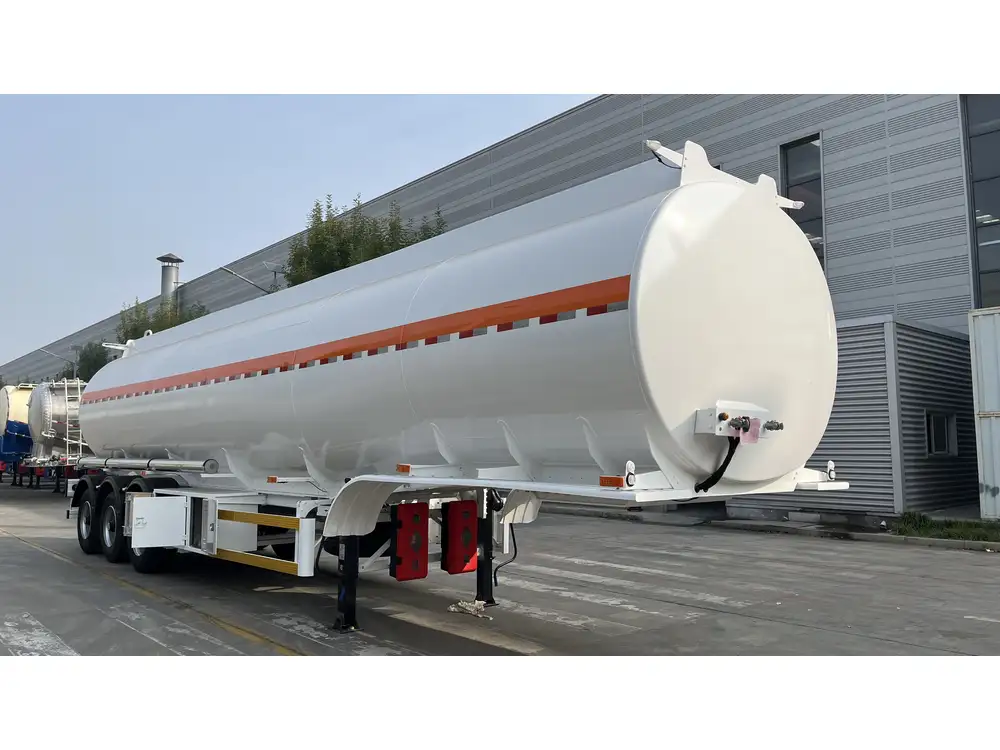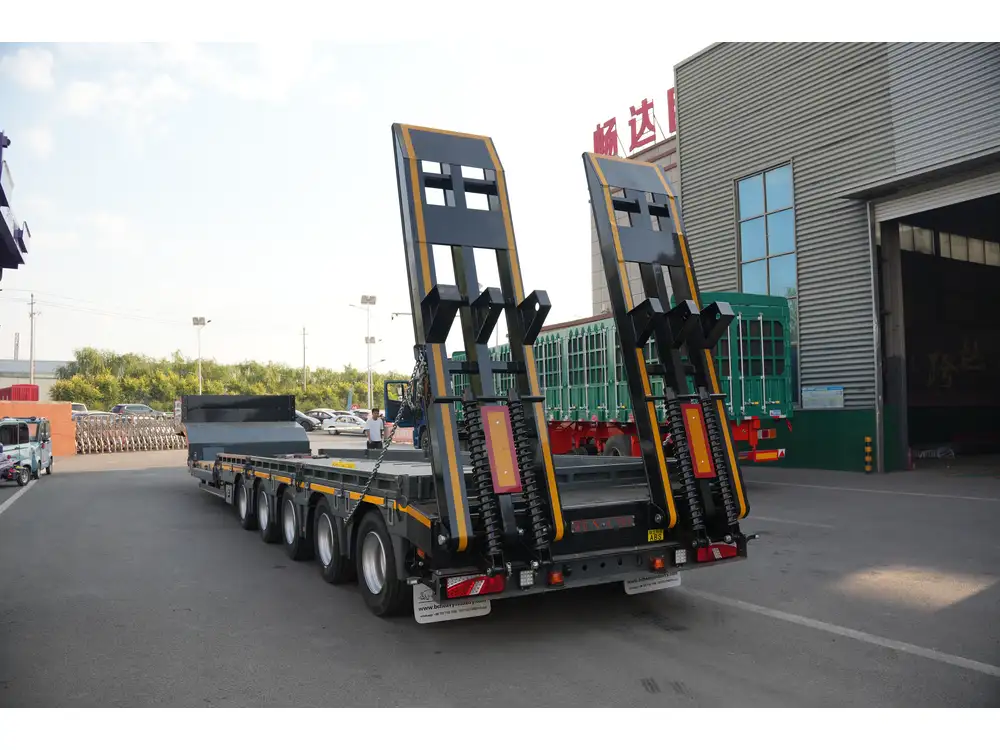When it comes to operating a dump trailer efficiently, understanding the battery system is crucial. A dump trailer relies on electric power to operate the hydraulic system that raises and lowers the trailer bed. This article seeks to dissect the various aspects surrounding batteries for dump trailers, including types, specifications, maintenance, and comparisons, catering to both novice and expert users.
Understanding Battery Basics for Dump Trailers
To fully grasp the requirements for dump trailer batteries, let’s delve into the essential components:
| Component | Description |
|---|---|
| Voltage | The electrical potential required to power the system |
| Amp Hour (Ah) | Measure of the battery’s energy capacity |
| Cold Cranking Amps (CCA) | Capability to start under cold temperatures |
| Cycle Life | The number of cycles a battery can undergo before failing |
In simpler terms, the right battery not only needs to provide sufficient voltage but also must have the capability to sustain operations over time, particularly during prolonged use.
Types of Batteries Suitable for Dump Trailers

1. Lead-Acid Batteries
Description: Lead-acid batteries remain the most common choice for dump trailers, primarily due to their availability and affordability.
Pros & Cons:
| Pros | Cons |
|---|---|
| Economically advantageous | Heavier compared to other types |
| Reliable for short-term use | Limited cycle life |
| Easily recyclable | Maintenance required (water level) |
2. AGM (Absorbent Glass Mat) Batteries
Description: AGM batteries are a subtype of lead-acid batteries that utilize a fiberglass mat to hold electrolyte, making them spill-proof.
Pros & Cons:
| Pros | Cons |
|---|---|
| Lower self-discharge rates | Higher upfront cost |
| Resistant to vibration and shock | Lifespan can vary significantly |
| Longer cycle life generally | Limited performance in extreme temperatures |
3. Lithium-Ion Batteries
Description: Lithium-ion batteries are increasingly popular due to their higher energy density and longer lifespan.
Pros & Cons:
| Pros | Cons |
|---|---|
| Lightest option available | More expensive than traditional batteries |
| Greater cycle life | Requires specialized charger |
| Rapid charging ability | Sensitive to high temperatures |

Specifications to Consider
Voltage Requirements
Common Options:
- 12V: The standard option for most small to medium-sized dump trailers.
- 24V: Typically used for larger models or those requiring enhanced lifting power.
Calculation: Before choosing a battery, evaluate the dump trailer’s hydraulic system specifications to determine the voltage needed for effective operation.
Amp Hour (Ah) Rating
The Amp Hour rating describes how long a battery can provide a specific current before discharging. To ascertain the appropriate rating, consider the following formula:
[ \text{Total Load (Amps)} \times \text{Operating Hours} = \text{Required Ah} ]For instance, a trailer that draws 10 amps for 5 hours would require a battery rated at least 50 Ah.

Cold Cranking Amps (CCA)
For dump trailers operating in colder climates, the Cold Cranking Amps (CCA) rating is critical. CCA indicates how well a battery can start in low temperatures. Ensure the battery you choose meets the operational demands even in frigid conditions.
Cycle Life and Depth of Discharge
Understanding the cycle life of a battery is pivotal. This number reflects how many times the battery can be discharged and recharged before its performance diminishes significantly. Moreover, different battery types allow varying depths of discharge (DoD), which also factors into the overall lifespan and usability.
Maintenance Tips for Dump Trailer Batteries
Maintaining a battery correctly can extend its life significantly, ensuring reliable performance. Here are some key maintenance tips:
Regular Inspections:
- Check for corrosion on terminals, ensuring connections are clean and tight.
- Verify that the electrolyte levels (if applicable) are maintained.
Charging Routine:
- Use an appropriate charger compatible with the battery type. Lithium batteries require specialized chargers.
- Avoid deep discharges to preserve the cycle life. Recharge when the battery falls below 50% capacity.
Storage Conditions:
- Store batteries in a temperature-controlled environment to avoid damage from extreme heat or cold.
- For longer storage, disconnect and store in a fully charged condition.
Testing:
- Regularly test the battery’s voltage and performance, specifically before heavy usage seasons.

Comparing Cost-Effectiveness
Initial Investment vs. Long-Term Costs
| Battery Type | Initial Cost | Average Lifespan | Maintenance Cost | Total Cost of Ownership |
|---|---|---|---|---|
| Lead-Acid | $100 – $300 | 2-5 years | Moderate | $200 – $600 |
| AGM | $200 – $400 | 3-7 years | Low | $300 – $800 |
| Lithium-Ion | $800 – $1,200 | 8-15 years | Very Low | $800 – $1,200 |
While lead-acid batteries appear to be the most affordable upfront, their shorter lifespan and higher maintenance costs can lead to higher long-term investments, particularly when factoring in replacement frequencies.
Power Delivery Efficiency
The efficiency of energy delivery also varies among battery types. Lithium-ion batteries, for instance, provide higher efficiency compared to their lead-acid counterparts, showcasing a significant advantage when powering equipment for more extensive operations.

Frequently Asked Questions (FAQs)
What size battery do I need for my dump trailer?
The size of the battery should align with the voltage and amp requirements of the hydraulic system. Typically, a 12V battery suffices for standard dump trailers, while larger models may necessitate a 24V battery.
How often do I need to replace my battery?
Battery replacement frequency depends significantly on the type used and the maintenance provided. Lead-acid batteries need replacing every 2-5 years, whereas AGM and lithium options may last longer.

Can I use a car battery for my dump trailer?
While a car battery can power a dump trailer, it’s not recommended due to potential incompatibility with hydraulic systems and limited power delivery for prolonged work. It’s best to use batteries designed specifically for trailers.
What is the best battery for cold weather?
AGM and lithium batteries both perform well in cold environments, maintaining their discharge rates better than traditional lead-acid batteries. Evaluate CCA ratings accordingly for your specific requirements.
Conclusion: Choosing the Right Battery for Your Dump Trailer
Choosing the ideal battery for your dump trailer is not merely about specifications but understanding how each option aligns with your operational needs. Whether you opt for lead-acid, AGM, or lithium-ion batteries, weigh the advantages and drawbacks meticulously.
To summarize, the life and efficiency of your dump trailer largely depend on battery maintenance, suitability for your specific use case, and understanding the nature of how each type of battery operates.
With well-informed decisions rooted in this foundational knowledge, you can ensure that your dump trailer remains operational, functional, and efficient for all your heavy hauling needs. Always prioritize quality and compatibility over initial savings to maximize your investment in the long run.



